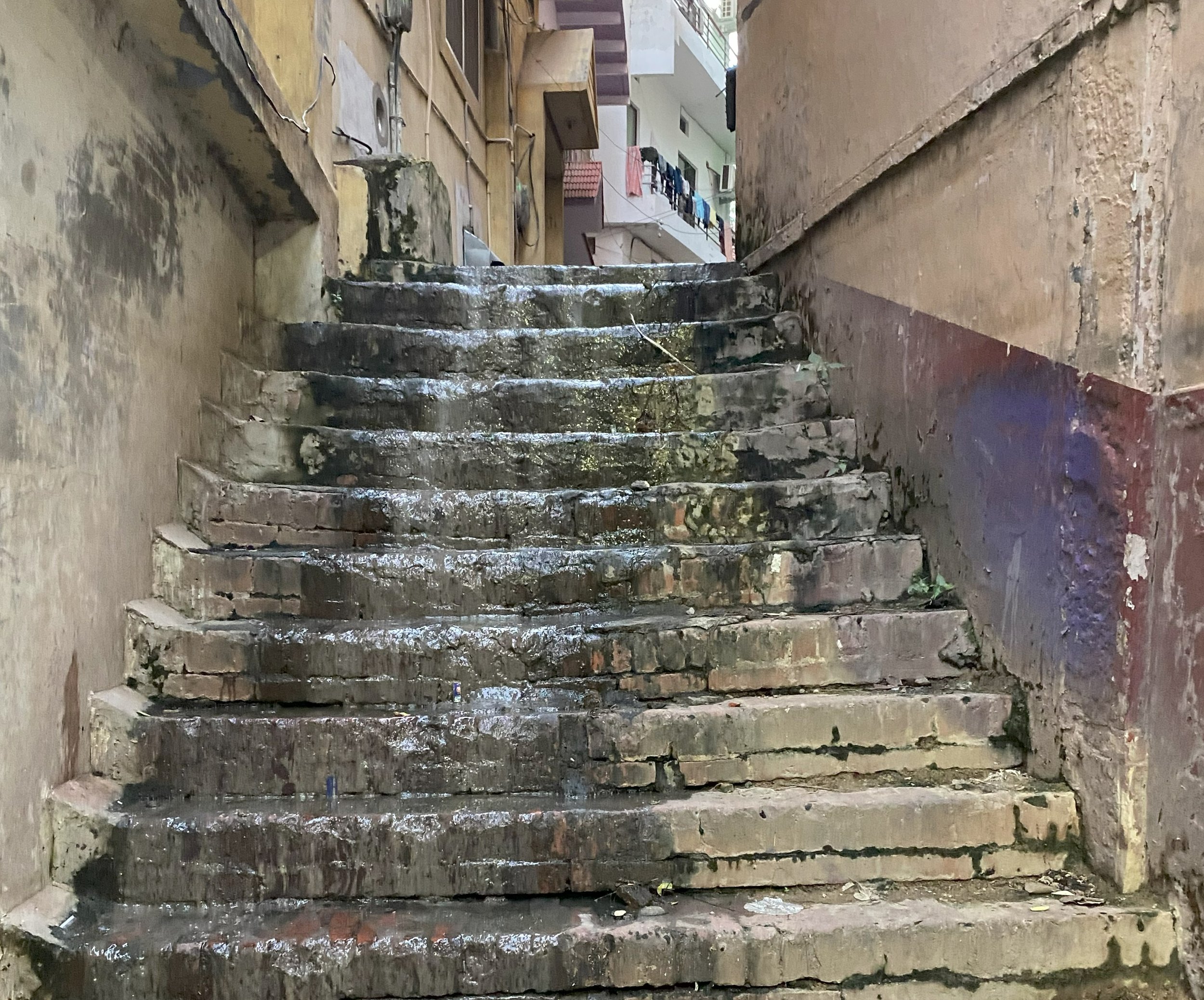In Goa, Serendipity and the Self
Photo Essay: In a visit to the Serendipity Arts Festival in Panjim, Goa, Deekshith Pai explored the political complexities of contemporary art while rediscovering his own ancestral lands.
‘A Day-Long Cloudburst’ – Two poems by Kiriti Sengupta
Poetry by Kiriti Sengupta: ‘In the crematorium, / the priest asks me to / smear ghee on my / father’s skin. He ensures / the fire finds Baba luscious.’
The Obvious
Short Story by Ananda Kumar: ‘He saw the black hairy tops of their heads, less like decked on top of each other, and more like the Siamese version of foreheads stuck together, threatening to break skin and bleed to death, if one were to try pulling them apart.’
Amulets of Resistance: Two Poems by Kashiana Singh
Poetry by Kashiana Singh: ‘A canopy of desert flowers for / the darkest of his nights, marvel / of bitterroot bursting forth from / dead earth’
The Migrating Verse
Creative Nonfiction by Ronald Tuhin D’Rozario: ‘And then, sometimes—only sometimes—we pull out a stack of old, old handwritten letters with multiple creases, letters exchanged in the past. We touch and re-touch the fragility of being, feeling, and loving too much, all that we once assumed that time couldn’t repair.’
‘On the wings of the seraph’: Two poems by Preeti Manaktala
Poetry by Preeti Manaktala: ‘Sparrows line up on a hanging / electric wire in the distant // chirping and waiting to dry their moist feathers, / but the sun seems incapable today / amid the fog.’
A Life on the Fringes of Cricket Madness
Personal Essay by Ajay Patri: ‘Sometimes I like to imagine a parallel universe in which my brother stayed. In this universe, I continued playing cricket after school, continued following the sport with the fervour of most of my compatriots.’
Blood, Sweat, Tears
Fiction by Neera Kashyap: ‘“My friends say this is dirty blood,” she said. “That’s why nobody talks about it, not even our mothers. Not even when there is pain. My mother says not to eat this and that, says I have to be careful now, dress modestly, not talk to boys.”’
Anamorphosis
Fiction by Kanya Kanchana: ‘Have you ever considered what it takes to make a goddess appear from wood and stone? My uli does not make a single false stroke.’
Odes to Autumn: Two Poems by Anushri Nanavati
Poetry by Anushri Nanavati: ‘September is penned in the black ink of loss: / the carcasses of a thousand spiders / strung together, legs locked, tumbling / in tandem’
A Jasmine Trail
Fiction by Urmi Chakravorty: ‘She lived in a community where a woman could cement her position only after she bore children. Without a biological offspring, her worth was limited: she was like another supermarket product, destined to be discarded after a brief shelf life.’















